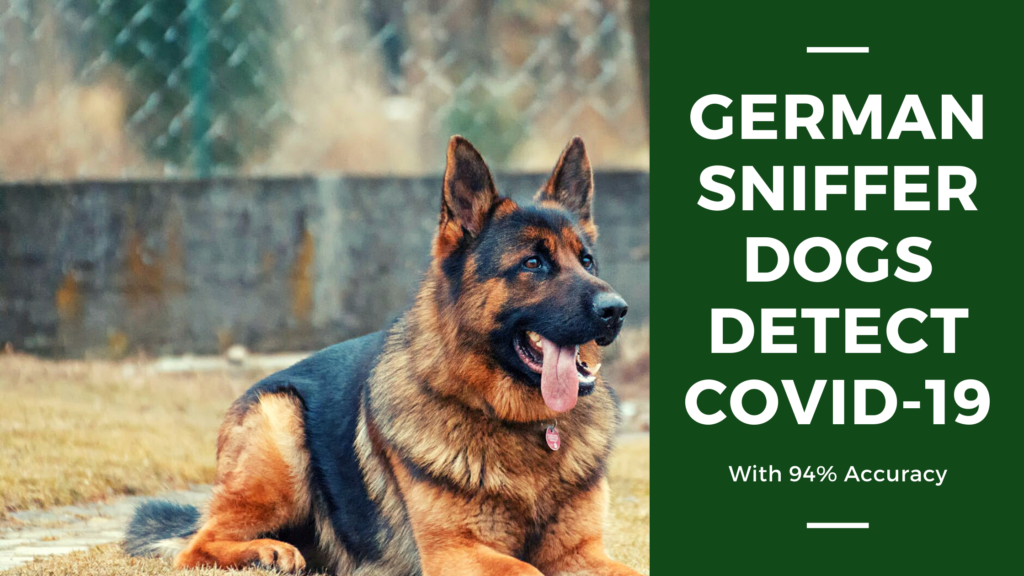Puppies Gear
German Sniffer Dogs Detect COVID-19 With 94% Accuracy
Our furry friends yet different from each other, some are tall while some are short and some are big while some are skinny have one thing in common—and that’s their sense of smell. Did you know that the dog’s sense of smell is somewhere between 10,000 to 100,000 times more acute than ours? One of the reasons a dog has such a better smelling ability than us is the number of scent receptors. For every scent receptor a human has, a dog has about 50, scientists guess. Because of their strong sense of smell, they are helpful to us for they can help humans track, identify and sniff out all kinds of things that improve our lives! Lawbreakers on the run, medications, falling glucose levels in their owners, traces of peanuts in food, bed bugs, drugs and contraband, missing persons, bombs and other explosives, and most especially, cancer and infectious diseases—like Covid-19 disease.
According to Reuters News Service, dogs can sniff out people with infections, without infections, as well as asymptomatic and symptomatic COVID patients in Hanover.
A German veterinary clinic has trained sniffer dogs to detect the novel coronavirus in human saliva samples with 94% accuracy.
According to Esther Schalke, a vet at Germany’s armed forces school for service dogs, the dogs are conditioned to scent out the “corona odour” that comes from cells in infected people.
Filou, a 3-year-old Belgian Shepherd, and Joe Cocker, a 1-year-old Cocker Spaniel, are two of the dogs being trained at Hanover’s University of Veterinary Medicine.
“We did a study where we had dogs sniffing samples from COVID-positive patients and we can say that they have a 94% probability in our study … that they can sniff them out,” said Holger Volk, head of the veterinary clinic.
“So dogs can really sniff out people with infections and without infections, as well as asymptomatic and symptomatic COVID patients,” he added.
Stephan Weil, premier of Lower Saxony, the state of which Hanover is the capital, said he was impressed with the study and called for a feasibility test before the sniffer dogs are put to use in everyday life, such as on people attending concerts.
“We now need tests in selected events,” Weil said.
In Finland, dogs trained to detect the novel coronavirus began sniffing passenger samples at Finland’s Helsinki-Vantaa airport last September, in a pilot project alongside more usual testing at the airport.
Chile’s Santiago international airport is also using canine detectors.
On the other hand, in order to keep our dog’s nose and all the other body parts working their best, we should make sure to schedule regular health and wellness veterinary exams.

